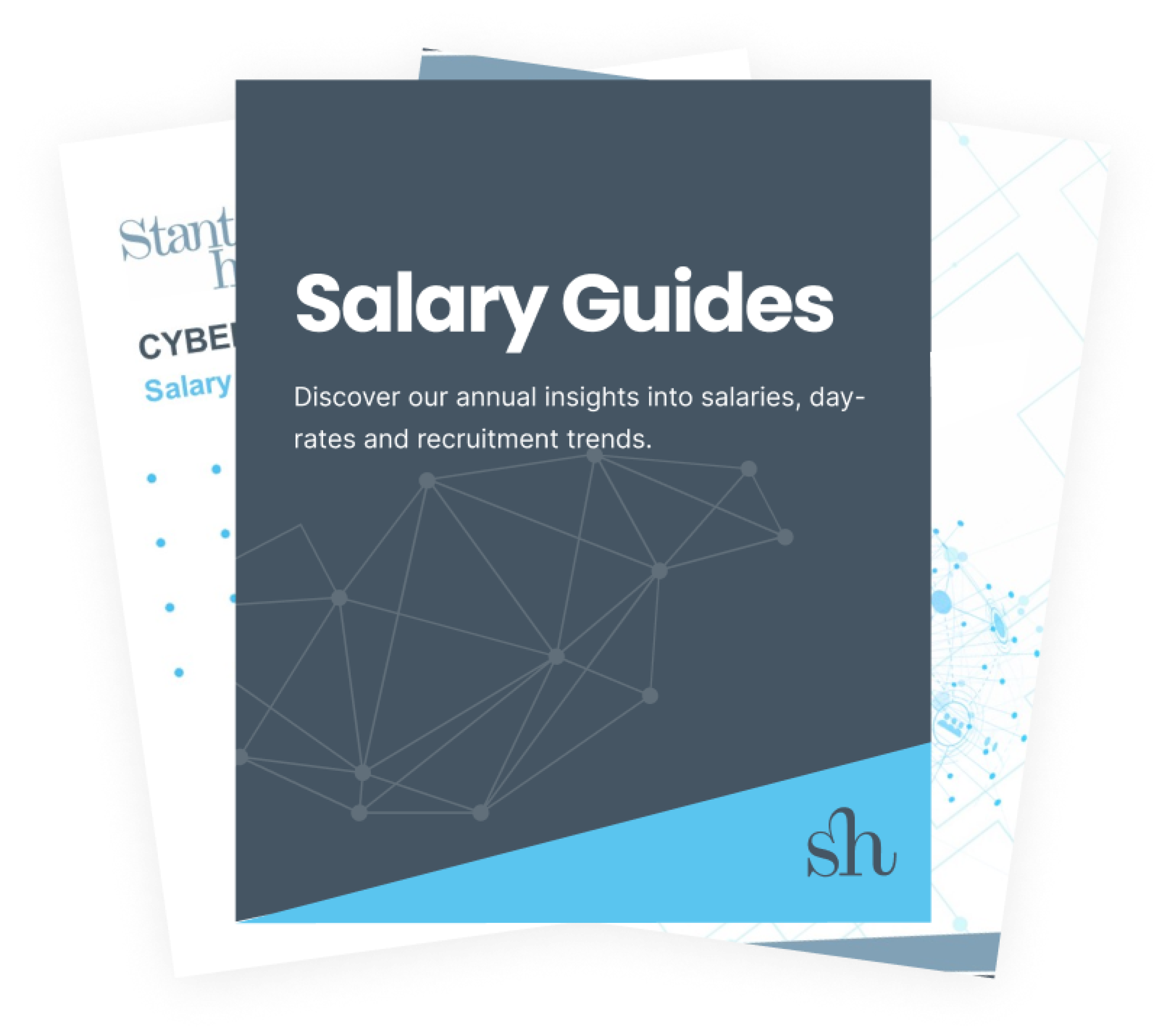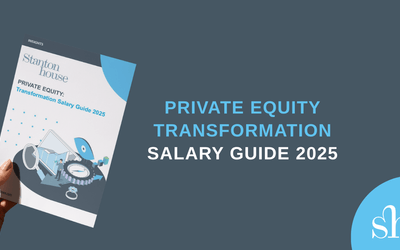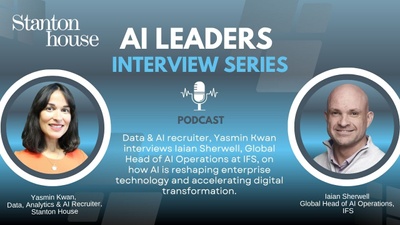
Driving Value: The CFO's Role in PE Buy-and-Build Growth
As a recruiter at Stanton House, I've had the privilege of working with some of the most talented and dynamic finance professionals in the industry. We partner with Private Equity (PE) funds and their portfolio companies to recruit Chief Financial Officers (CFOs), Finance Directors (FDs), and their direct reports.
This focus provides insight into the challenges and opportunities associated with a PE environment, particularly portfolio businesses that are on a buy-and-build journey.
The role of a CFO in a PE-backed firm differs from that in a traditional corporate setting, requiring a unique set of skills and attributes. For senior finance leaders considering a move into a PE-backed business, understanding these nuances is crucial for success.
Understanding the Buy-and-Build Strategy
A buy-and-build strategy involves acquiring multiple smaller companies (the 'buy' phase) and integrating them to create a larger, more competitive entity (the 'build' phase). This approach aims to achieve rapid growth, enhanced market share, economies of scale, and overall value creation.
As a senior finance leader in such a setting, you will be deeply involved in both phases. During the acquisition phase, you will work closely with the CEO, Corporate Finance Lead and PE fund to evaluate potential targets, conduct due diligence, and negotiate deals. This requires a keen eye for detail, strong analytical skills, and the ability to assess financial health and strategic fit quickly.
The focus then shifts to integration of the acquisition(s). This involves aligning financial systems and processes, driving synergies, and ensuring the smooth integration of different corporate cultures. It is a complex task that demands exceptional project management skills, the ability to lead and inspire teams through change, and a strategic mindset.
Key Attributes and Skills Needed
1. Strategic Vision: A buy-and-build strategy requires a CFO who can see the big picture. You need to understand how each acquisition fits into the overall growth strategy and how to leverage each asset to its fullest potential. This involves not just financial acumen but also a deep understanding of the market, competition, and industry trends.
2. Operational Excellence: Integrating multiple companies is no small feat. It requires a CFO who excels in operational management. You must be adept at streamlining processes, integrating financial systems, and driving efficiency across the organisation often outside of Finance through HR, Legal and IT ensuring that each area is aligned with the overall business and its objectives.
In some instances, this is recognising you must recruit external resource on either an interim or permanent basis to deliver what is required on time.
3. Change Management: Leading through change is a critical aspect of the role. As companies merge, there will be cultural shifts, resistance to change, and operational disruptions. A successful CFO in a buy-and-build strategy is one who can foster a positive and cohesive company culture while driving forward the strategic agenda. This skillset if often derived from prior experience, both from positive and negative change programmes.
4. Strong Communication Skills: Communication is key, both internally and externally. You must be able to articulate the financial and strategic rationale behind acquisitions to various stakeholders, including the PE fund, board of directors, employees, and external partners. Clear, transparent, and persuasive communication helps in gaining buy-in, ensuring everyone is aligned with the strategic goals and in negotiations.
5. Risk Management: Acquisitions come with inherent risks, from financial liabilities to integration challenges. The CFO must be skilled in identifying, assessing, and mitigating these risks. This involves rigorous financial analysis, robust due diligence, and a proactive approach to problem-solving.
The PE Difference
The role of a CFO in a PE-backed firm is markedly different from that in a traditional corporate setting. In a non-PE environment, the focus is often on steady, incremental growth largely centred around financial stewardship, governance, risk management, compliance, and reporting.
In contrast, a PE-backed CFO must be a dynamic, strategic leader who thrives in a fast-paced, high-pressure environment. The focus is on creating value quickly, often within a 3–5-year investment horizon. This means driving aggressive growth, making swift, decisive actions, and constantly looking for ways to enhance the company's value through revenues and EBITDA.
Moreover, PE firms are typically more involved in the day-to-day operations of their portfolio companies. This requires proactive CFO who can work closely with the PE fund, understanding their expectations, drive strategy and deliver. This relationship is more collaborative and hands-on, with frequent reporting and regular updates on performance metrics.
Opportunities for Growth & Impact
For senior finance leaders, the opportunities derived from joining a PE-backed business embarking upon a buy-and-build strategy are immense. You have the chance to spearhead transformative growth, playing a pivotal role in shaping the future of the company and the forefront of a growth story. The experience gained is unparalleled, providing deep insights into M&A, integration, and value creation.
Working in such a dynamic environment also offers significant career advancement opportunities. Successfully navigating the complexities of a buy-and-build strategy can position you as a highly sought-after leader, capable of driving growth and creating value in any setting – especially if you can lead the business to a successful exit at the end of the cycle.
In conclusion, while the challenges are significant, the rewards of working as a senior finance leader in a PE-backed business on a buy-and-build journey are equally substantial. It requires a unique blend of strategic vision, operational excellence, change management skills, and strong communication abilities. For those ready to embrace the challenge, the impact you can make is profound, driving transformative growth and creating lasting value.



















